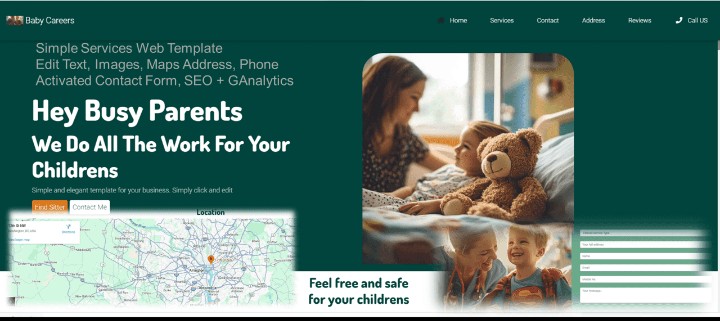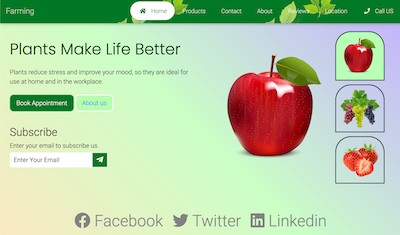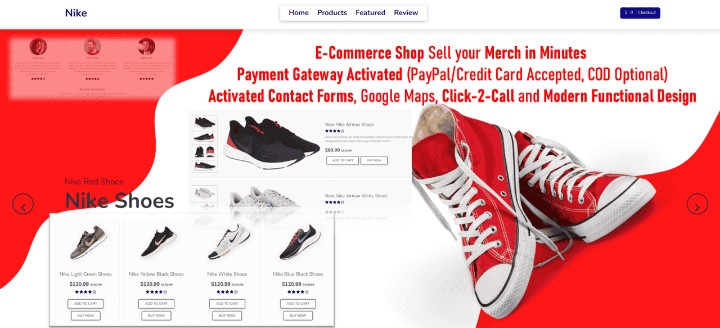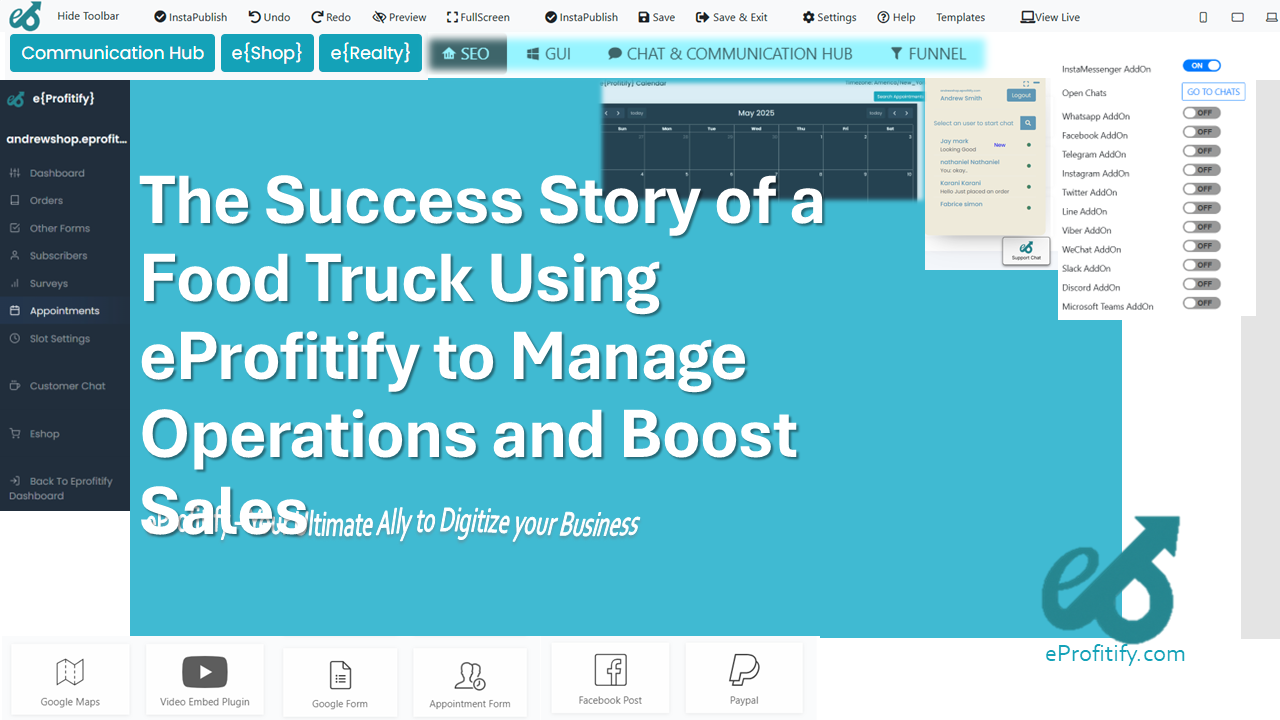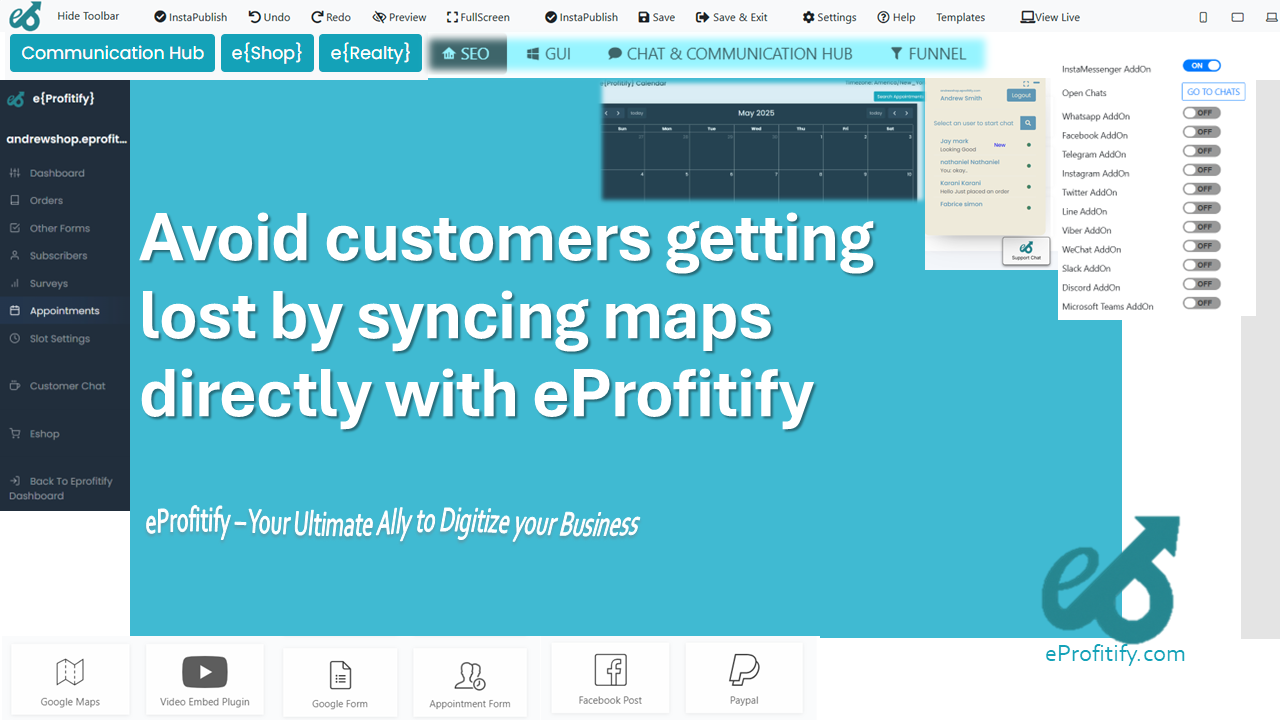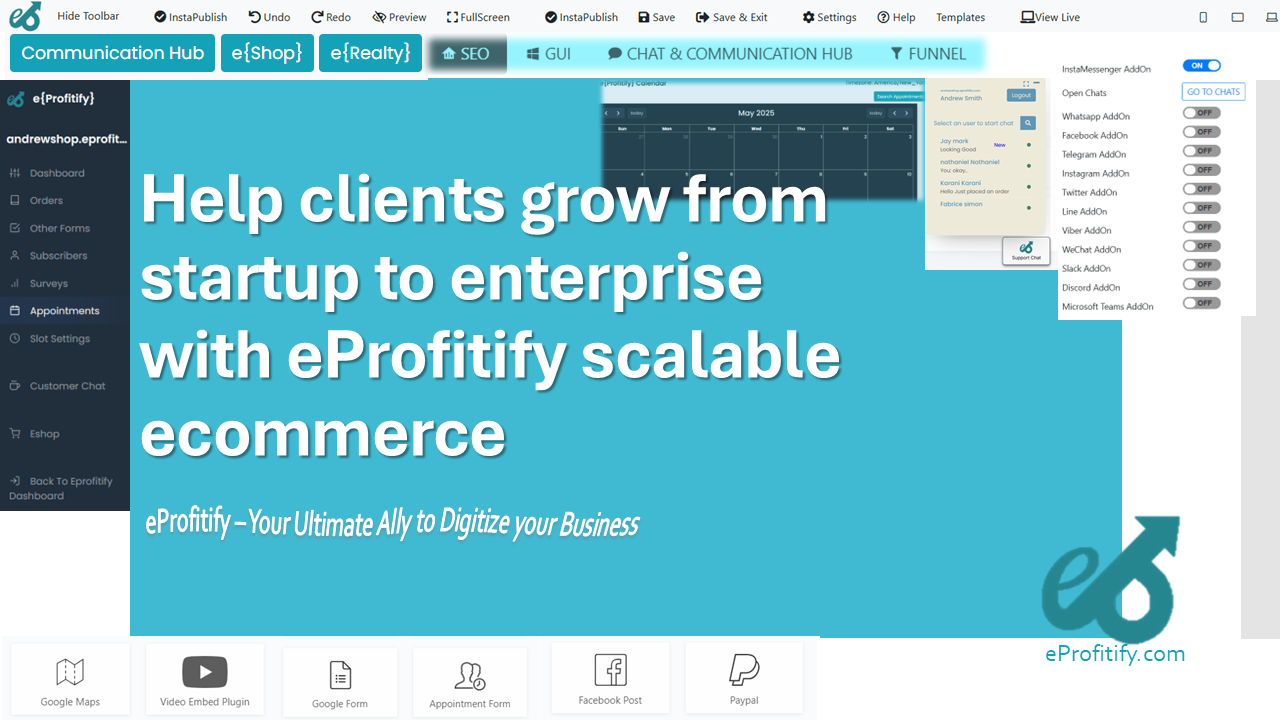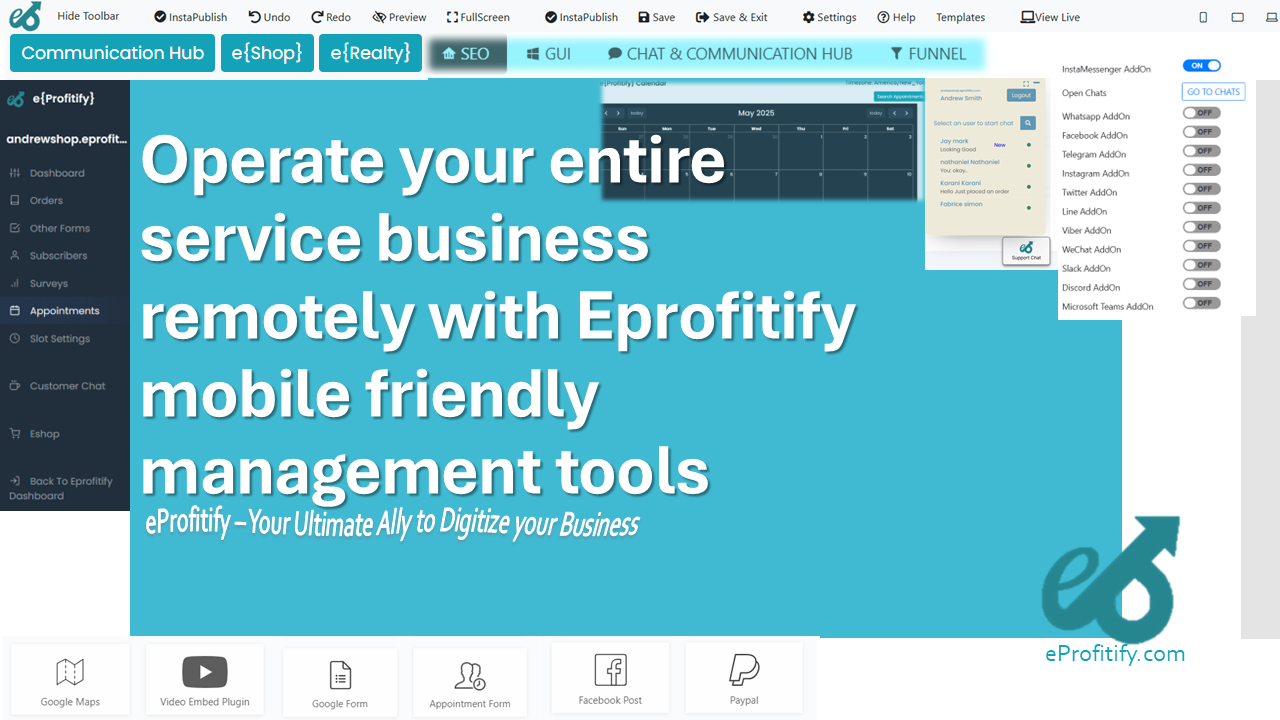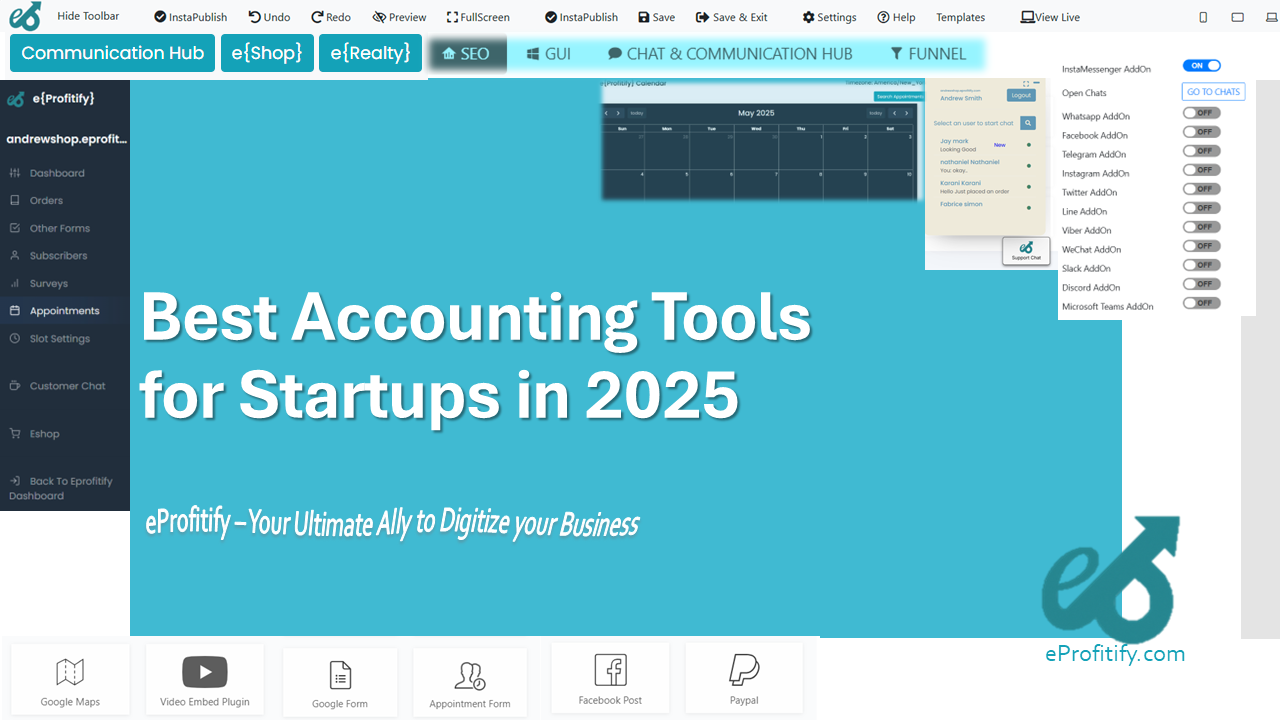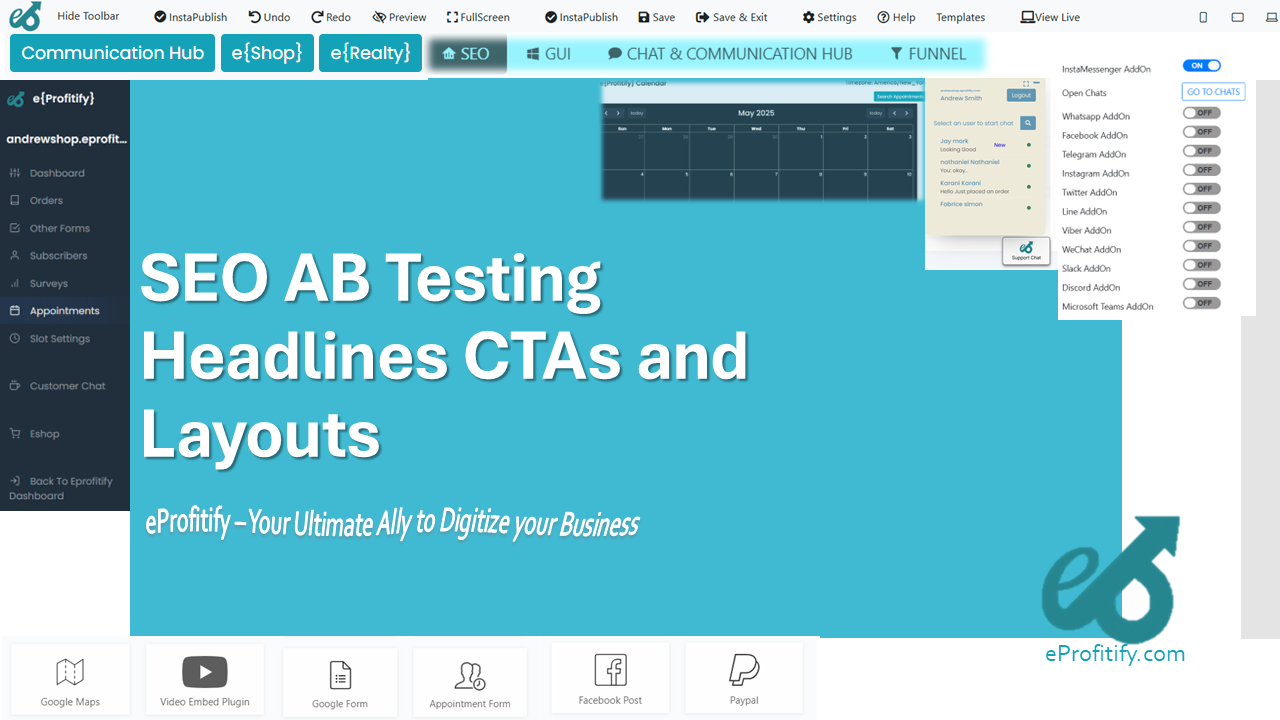How AI Is Changing SEO Strategy and Content Creation
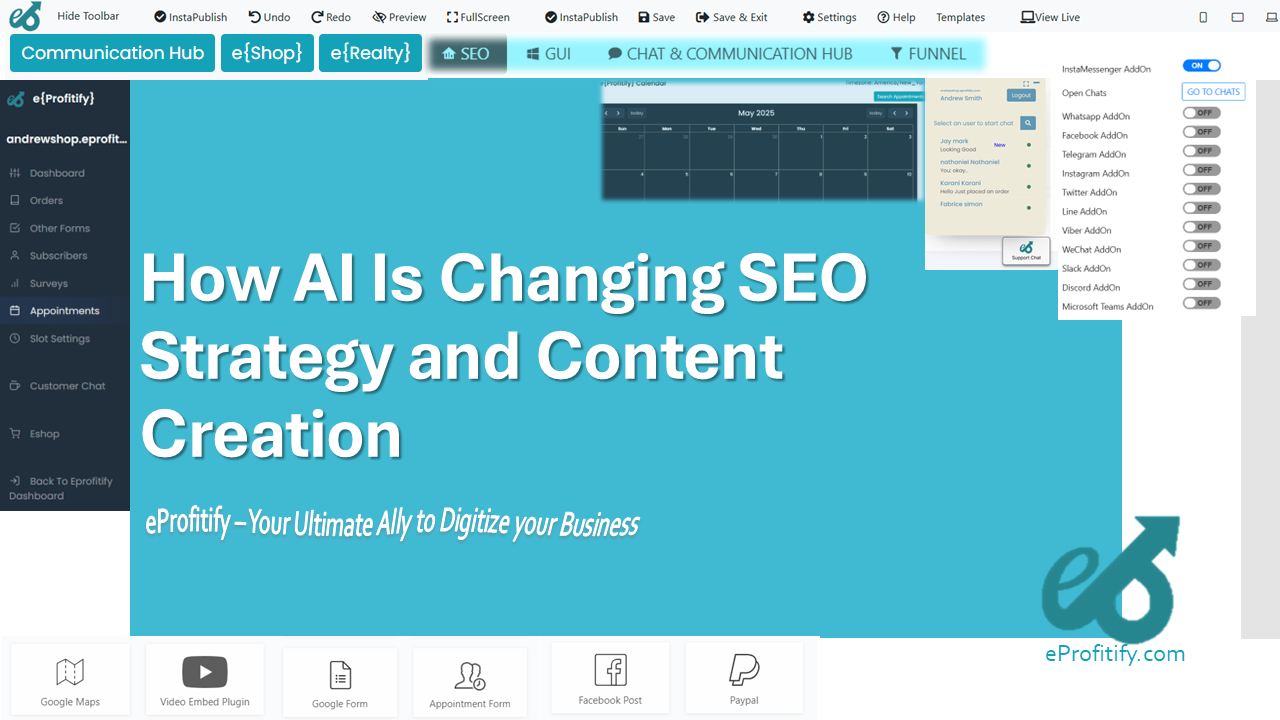
Schedule a LIVE Zoom call with an eProfitify Expert.
How AI Is Changing SEO Strategy and Content Creation
The integration of artificial intelligence (AI) into digital marketing is reshaping how businesses approach SEO and content creation. By automating complex processes, enhancing data analysis, and personalizing user experiences, AI has become a cornerstone of modern marketing strategies. As the landscape evolves, platforms like eProfitify—a leading website publishing and management tool—are leveraging AI to streamline workflows, optimize content, and deliver robust features such as instant messaging, appointment management, ecommerce, and CRM.
AI’s Role in Modern SEO Strategies
1. Automated Keyword Research and Optimization
Traditional keyword research required hours of manual analysis, but AI tools now process vast datasets in seconds. Platforms like Ahrefs and SEMrush use machine learning algorithms to identify high-traffic keywords, predict trends, and assess competition. According to MarketsandMarkets, the AI in SEO market is projected to grow from $590 million in 2023 to $1.5 billion by 2028, reflecting a compound annual growth rate (CAGR) of 20.5%.
AI-powered tools also optimize content by analyzing top-performing pages, suggesting semantic keywords, and ensuring alignment with search intent. For instance, natural language processing (NLP) enables tools like Frase and Surfer SEO to recommend content structures that rank higher on search engine results pages (SERPs).
2. Predictive Analytics and Trend Forecasting
AI’s predictive capabilities allow marketers to anticipate shifts in user behavior and algorithm updates. Tools like BrightEdge leverage AI to forecast traffic patterns and recommend real-time adjustments. A 2023 BrightEdge study revealed that 62% of marketers using AI-driven SEO tools observed a 20%+ improvement in organic traffic within six months.
3. Personalization at Scale
Search engines increasingly prioritize personalized user experiences. AI analyzes user data—such as browsing history and demographics—to deliver hyper-targeted content. HubSpot notes that personalized call-to-actions (CTAs) convert 42% more visitors than generic ones. Machine learning models also enable dynamic content adjustments, ensuring websites cater to diverse audience segments.
AI-Driven Content Creation
1. Automated Content Generation
Generative AI models like GPT-4 and Google’s BERT are revolutionizing content creation. These tools produce drafts, meta descriptions, and even long-form articles, reducing production time by up to 50%. Gartner predicts that 30% of enterprise content will be AI-generated by 2025, up from less than 5% in 2022. Platforms like Jasper and Copy.ai use AI to maintain brand voice consistency while scaling output.
2. Enhancing Creativity and Efficiency
AI assists writers by suggesting headlines, optimizing readability, and detecting plagiarism. Grammarly’s AI-powered writing assistant, for example, improves clarity and tone for over 30 million users daily. Additionally, tools like Canva’s Magic Design generate visual content ideas, ensuring cohesive multimedia strategies.
3. Multilingual and Localized Content
Global brands leverage AI to create content in multiple languages while preserving context. OpenAI’s Whisper transcription tool and DeepL Translate enable real-time translation and localization, helping businesses expand into new markets efficiently.
eProfitify: Integrating AI with Comprehensive Digital Management
As AI transforms SEO and content creation, platforms like eProfitify consolidate these advancements into a single, user-friendly ecosystem. eProfitify stands out as a leading website publishing and management tool by integrating AI-powered features with essential business functions:
- Instant Messaging: AI chatbots automate customer interactions, resolve queries instantly, and improve engagement—a critical factor for SEO rankings.
- Appointment Management: Machine learning algorithms optimize scheduling, reduce no-shows, and sync with CRM systems to personalize follow-ups.
- Ecommerce: AI-driven product recommendations boost conversion rates by analyzing user behavior, while automated SEO tools optimize product descriptions for higher visibility.
- CRM Integration: Predictive analytics track customer journeys, enabling segmented email campaigns and tailored content strategies.
eProfitify’s AI capabilities also extend to content optimization, ensuring blogs, product pages, and metadata adhere to SEO best practices. By merging these tools, businesses eliminate silos, reduce operational costs, and maintain agility in competitive markets.
The Future of AI in SEO and Content
The synergy between AI and human creativity will define the next era of digital marketing. While AI handles data-heavy tasks, marketers can focus on strategic storytelling and innovation. Tools like eProfitify exemplify this balance, offering scalability without compromising quality.
Statistics Highlighting AI’s Impact:
- Companies using AI for content marketing see a 40% increase in engagement (HubSpot, 2023).
- 78% of marketers report higher ROI after adopting AI-driven SEO tools (Search Engine Journal).
- AI-generated product descriptions can improve ecommerce conversion rates by up to 35% (McKinsey).
In conclusion, AI is not just a trend but a necessity for businesses aiming to thrive in the digital age. Platforms like eProfitify empower organizations to harness AI’s potential, blending advanced technology with user-centric tools to drive growth, efficiency, and visibility.
